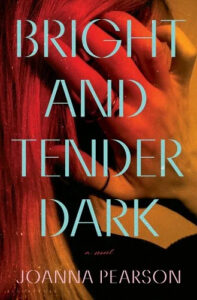One of my favorite narrative tricks is when a story coalesces around an absent character, someone the reader might never even meet but who nonetheless casts a long shadow. I think this might be what our drive toward storytelling is all about—how else do we reckon with loss? Most stories grapple on some level with absence, with aftermath, all the ways in which we’ve been changed by someone once present, now gone. This someone has touched us in a way we haven’t quite recovered from, and the best attempt at recovery is through the meaning-making of telling stories. (I see this in my day job practicing as a psychiatrist as well.) The absent ones become our ghosts, our legends, the totem shapes we summon gathered around campfires.
My debut novel, Bright and Tender Dark, tackles the long and rippling impact of one such absence: that of beautiful, charismatic 19-year-old Karlie Richards, a college sophomore found murdered in the early days of the year 2000. The hole Karlie’s death creates becomes a kind of eerie echo chamber through which other voices bounce, people she touched only obliquely, but who now look to her—or to the mythologized version of her—to make sense of their own lives, their search for meaning, connection, and belief.
As a reader, I love books haunted by these central absences—absences that morph and refract and set the dominoes of plot into motion like a phantom hand. Here are a few of my favorites.
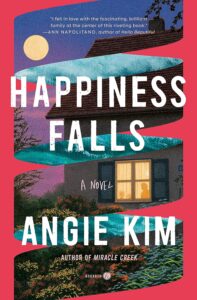
Happiness Falls by Angie Kim
Angie Kim’s smart and highly readable 2023 novel follows the sudden disappearance of a father, witnessed by his nonverbal youngest son. This leaves Mia, his twenty-year old daughter, our bright and hyperverbal narrator, trying to figure out what happened. Happiness Falls is a family novel masquerading as a mystery and a mystery masquerading as a family novel. Ultimately, it gets at the way in which we are always both known and unknown to the people we most love.
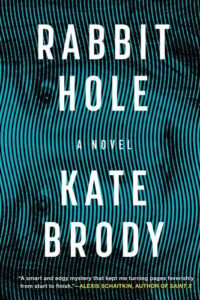
Rabbit Hole by Kate Brody
Ten years after Theodora “Teddy” Angstrom’s sister disappeared, her father takes his own life—thus starts Kate Brody’s riveting 2024 debut, a novel haunted by these double shadows. As much a literary mystery as a meditation on grief, this is a story about the desperation to understand faced by those suddenly left behind.
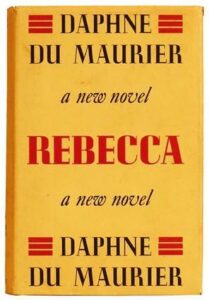
Rebecca by Daphne Du Maurier
How could I not include Rebecca, the OG novel built around a central absence, on this list? I love the way the titular Rebecca morphs from a kind of idealized beyond-the-grave rival into a reality far more cruel and troubling and human. From that shivery first line, “Last night I dreamt I went to Manderley again,” we know this will be a book about the inescapability of memory, legacy, and the paths trod by those who precede us.
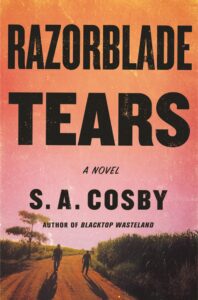
Razorblade Tears by SA Cosby
For Southern noir that offers all the genre’s most thrilling twists while upholding the highest literary standards of elegant writing and characterological complexity, there is no one better than SA Cosby. In this, his 2022 novel, we meet Ike Randolph, a Black man in Virginia who has scrupulously steered clear of the law after serving time. When his son and his son’s white partner are murdered, he forges an unlikely alliance with the father of his son’s late partner, Buddy Lee, a white man who has also run afoul of the law in the past. Together, these two men are determined to find their sons’ killer. This novel, like all of Cosby’s work (please also see his 2023 title, All the Sinners Bleed, which is incredible!), tackles the complexities of family, race, and life in a region still riven by its brutal history.

The Little Friend by Donna Tartt
Donna Tartt’s 2002 sophomore novel gets overshadowed by her mic drop debut, The Secret History (which I also heartily recommend!), but I’m here as an apologist for The Little Friend. Robin, the nine-year-old son and eldest child of a white family in Mississippi, is found hanging from a tree on the family property, devastating his parents. Twelve years later, his baby sister Harriet, born into a family seeped in this long sadness, is fascinated by her brother’s murder and determined to solve it. What follows involves intrigue, drugs, and yet another death, but the original mystery of Robin’s murder is never solved. (For bonus points, I recommend the deliciously gossip-filled podcast “Once Upon a Time…at Bennington College” for the inside scoop on the so-called literary Brat Pack.)
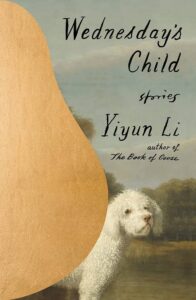
Wednesday’s Child by Yiyun Li
Yiyun Li is one of the best short story writers currently at work, and I lose no opportunity to recommend her recent short story collection whenever possible—and Wednesday’s Child is simply exquisite and absolutely haunted by loss. “‘Never argue,’ was Rosalie’s motto; especially, never argue with the dead.” So reads one line from the title story, although what proceeds are stories in which people most definitely argue with—or at least engage in conversation with—the dead.
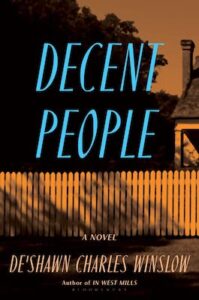
Decent People by De’Shawn Charles Winslow
De’Shawn Charles Winslow’s 2023 second novel is set in still-segregated 1970’s small town North Carolina where the triple homicide of Marian, Marva, and Lazarus Harmon, three prominent Black siblings, sends accusations ricocheting through the community. Ms. Jo Wright has moved back from New York to her hometown to marry her fiancé, Lymp, but finds him accused of the murder—of his three half-siblings. In order to clear Lymp’s name, she must try to understand the complicated relationship of the three victims with the rest of the town. Winslow uses literary mystery as a tool to explore racism, homophobia, and economic disparity in this sharp, engaging novel.
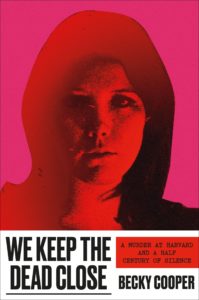
We Keep the Dead Close by Becky Cooper
Becky Cooper’s 2020 nonfiction masterpiece is the ne plus ultra when it comes to true crime/memoir hybrids. In 1969, Jane Britton, an ambitious Harvard graduate student, is found murdered in her Cambridge apartment. Decades later, Cooper, herself an undergraduate at Harvard, becomes consumed with the whispered lore around this unsolved murder. Painstakingly researched, thoughtfully written, this book is a nuanced exploration of what it means to be a woman living in a world of femicide and sexual violence, and the way such violence shapes the stories we tell.
***


